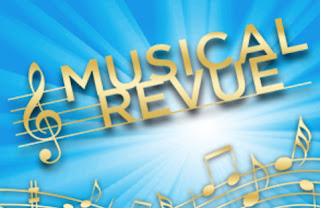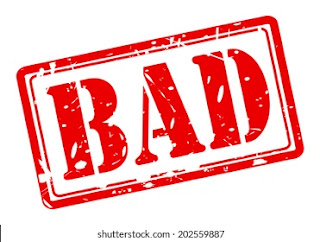After two years with this show in my head, I now have a much better grasp of why audiences embrace Head Over Heels so utterly. It's about dignity. There's such a powerful sense of dignity around these characters' feelings and relationships. The only foolishness is in those who haven't yet found self-awareness, who haven't found their own innate dignity.
Beneath all the wacky hijinks, there's something very serious going on, dealing with the most powerful human drives: love and lust. It's a smart, sneaky, brilliant piece of theatre, which uses its "spoonful of sugar" (in this case, the Go-Go's) like a laser-guided missile. The show disassembles nearly all our preconceptions about love, sex, gender, identity, body type, you name it. It presents The Other as Not Other, but does it in such a charming and funny way, we don't consciously notice this incredibly subversive act.
In Head Over Heels, gender is essentially irrelevant, and our preconceptions are repeatedly burst. One character, Pythio, the new Oracle at Delphi, is explicitly "non-binary," and again, our preconceptions about them set us up for the most delightful surprise right before the finale. It's fun for both actors and audience to deflate, mock, and dismiss concepts we all take for granted (until we see how silly they really are).
Parallel to that, lots of theatre companies and choruses around the country often put on concerts of show tunes, in which the singers sing theatre songs that were written for characters that these singers ordinarily wouldn't be considered for. In other words, men sing Velma and Roxie's anthems from Chicago, adults sing "Tomorrow" from Annie, gay performers sing songs written about heterosexual love and sex, like "We Kiss in a Shadow" from The King and I.
The new context -- or the ignoring of the original context -- can be revealing in wonderful ways, exploring the lyrics' wider resonances and even unintentional relevance. We can see that at work in New Line's Head Over Heels, taking the songs of The Go-Go's and recontextualizing them for these times.
There's nothing particularly new or unconventional about exploring new context. That's the whole point of taking a song from the dramatic stage and reinterpreting it for the concert stage, right? After all, Frank Sinatra recorded "Send in the Clowns," which was written for Desiree Armfeldt. New Line's three revues, the Out on Broadway series, took show tunes about straight people and put them in the mouths and lives of gay people. Like I said, it really is interesting how the songs change, expand, even without changing the words.
There seems to be a renewed (or newly discovered) focus right now on reassigning songs in this way for musical revues; but for some reason the folks putting these revues together give their shows inherently insulting names. There is no dignity here. Almost all the titles include the words backwards or miscast. This has always bothered me, but any challenge to these awful titles is met inevitably with high dudgeon. And too often, these folks vehemently defend the performances within the show, pretending my objections aren't about only the title.
Why do these folks want the idea of wrongness defining their show? Is it wrong for a woman to sing a song written for a man? Is it wrong for an older woman to sing a song written for a young man? Is it wrong for a gay man to sing a song written for a straight man?
No. None of those things are wrong. And they are not backward! They are merely different.
Every time I see one of those revue titles, all I can think of is the gay, effeminate, high school drama nerd, who sees or hears these titles and gets the unmistakable message, loud and clear: this kind of casting, even in a concert, is WRONG or BACKWARDS. He can not play Harold Hill or Clyde Barrow. The heavy girl who wants to play Marian the Librarian also sees that casting against type is WRONG, even comically WRONG.
When I challenge these titles (as I have several times over the years), and explain why they may send a destructive message, the people who conceive and title these shows shut down tight. They won't even consider that their title might be hurtful, that other titles may be just as good without being hurtful. As just one example, why not change the title Magnificently Miscast to Magnificently Recast? Why not change Broadway Backwards to Broadway Reimagined? In other words, get rid of the idea of Bad. Is it just about the alliteration?
One person explained that they were "taking the word miscast back." But what does that mean? Was that word taken from them somehow? Sometimes, marginalized groups will "take back" a slur used against them, as the gay community took back the word "queer" and redefined it. But miscast isn't a slur; it's a word they use to describe themselves. They choose to label their own shows as wrongly cast.
Some of them will argue they're using the words miscast and backwards in a funny way, to make fun of conventional casting practices. Some of these shows even have opening numbers explaining that. But still, the show's title, its public identity, literally tells us this idea is Bad. Casting against type is wrong. Casting against type is backwards.
Spoiler Alert: No it isn't.
Perhaps the most baffling part of all this is that none of these folks producing these shows will even think about the negative effect these ill-considered (or maybe un-considered) titles may have. I think of a black teenager who wants to play Mama Rose in the spring production of Gypsy. What message does she get from these revue titles that explicitly label unconventional casting as wrong and backwards?
And don't tell me it's just semantics. It's so much more. It's a mindset, a subliminal, usually unacknowledged, potentially toxic worldview. Haven't we learned anything from the #BLM and #MeToo movements? Haven't we learned to question our own assumptions and preconceptions? If not, we're in trouble.
Our world is changing fast. We'll all make mistakes. We'll all say the wrong thing. We'll all need time to adjust to all these changes. But we have to be willing to think about things like this, rather than just defend the status quo or defend our missteps. Everything Americans once thought about age, gender, sexuality, race, body type, family, etc., all of it is up for grabs. That's why Head Over Heels is selling like wildfire. People need stories to make sense of their lives and the chaotic world around them. We have to be willing to embrace this change, not cower from it.
And we must remember the words of Uncle Steve: "Careful the things you say -- children will listen."
It's a new world. And that's a good thing. And words matter.
Long Live the Musical!
Scott











0 comments:
Post a Comment